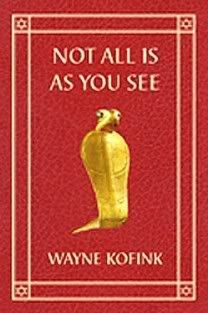A USELESS WASTE
A carpenter and his apprentice were walking together through a large forest. And when they came across a tall, huge, gnarled, old, beautiful tree, the carpenter asked his apprentice: "Do you know why this tree is so tall, so huge, so gnarled, so old and beautiful?" The apprentice looked at his master and said: "No ... why?"
"Well," the carpenter said, "because it is useless. If it had been useful it would have been cut long ago and made into tables and chairs, but because it is useless it could grow so tall and so beautiful that you can sit in its shade and relax."
—adapted from Chuang Tzu, The Inner Chapters. From Spiritual Formation by Henry Nouwen.
How our culture hates what is useless. I heard one of the radio blabber-mouths ranting on and on about the Army Corps of Engineers bringing a halt to paving a road because it would destroy three areas of wet lands. Can’t let that useless swamp stand in the way of progress. And National Parks? Why they are only useful as a source of timber and ore and oil. Rip it apart, tear it up, dig it out. The world is full of things to be used.
What is sadder is that so much of our culture sees people as things to be used as well. I have heard the tales of bosses who tell their underlings that they are nothing but costs, that monkeys could do their job, that the boss cares nothing about employee loyalty and in fact would rather get rid of the long-term employees.
I come to wonder sometimes if religion itself is only valued as a thing to be used. When I was studying personality theory for my doctoral dissertation I looked at the difference between who were intrinsically religious and those who were extrinsically religious, that is, those who were religious for its own sake and those who were religious because it was a means to some other end. The Agony Column Writers used to suggest that people join religious groups if they were seeking a spouse. Or insurance salesmen were encouraged to join churches because that was a good way to find clients.
And then comes the problem of prayer. I was taught in Sunday School about prayer–at least taught that I should pray. As I put it together prayer was about thanking and praising God, telling God you were sorry for doing bad things, and asking for a few things, mostly things for other people, but it would be all right to ask for yourself if it were something like doing well on a test. No praying for an ice cream cone or stuff like that.
This was typical Protestant prayer–talking to God. The notion that one listened to God in prayer was never hinted at. You listened to God in the Bible or in a sermon or perhaps in one’s conscience. Listening to God in prayer was not something we considered.
I have gotten beyond that limitation by learning other forms of prayer, particularly centering prayer. But that raises a whole new set of problems. I don’t mean the ones some fundamentalist Christians raise that if you do any form of contemplative or meditative prayer, you are opening yourself up to evil spirits. What nonsense. That attitude shows a real lack of trust in God as if the Holy Spirit could be overpowered by just any old evil spirit that comes floating around. The problem is that prayer still becomes a means to something else. There is a danger that I pray not just to pray but so that something else happens.
Here’s Henri Nouwen writing about this problem.
The world says, "If you are not making good use of your time, you are useless." Jesus says: "Come spend some useless time with me." If we think about prayer in terms of its usefulness to us—what prayer will do for us, what spiritual benefits we will gain, what insights we will gain, what divine presence we may feel from the idea of the usefulness of prayer and the results of prayer, we become free to "waste" a precious hour with God in prayer. Gradually, we may find, our "useless" time will transform us, and everything around us will be different.
There is the real purpose of prayer–wasting time with God. Being there with God. For a lot of people that is a silly thing. Religion ought to be accomplishing things–feeding the poor, saving the environment. Yes, these are good things we should work for, but they can’t be the sole purpose of religion, at least not of Christianity. There are a whole lot of organizations that do these sorts of things, but what other organization presses for a relationship with the living God? We need to waste time with God.
As you go on your journey may you pause from time to time to waste time with God and so blessed may you continue on until the Lord greets you on your arrival.
Wayne
15281
Labels: prayer




